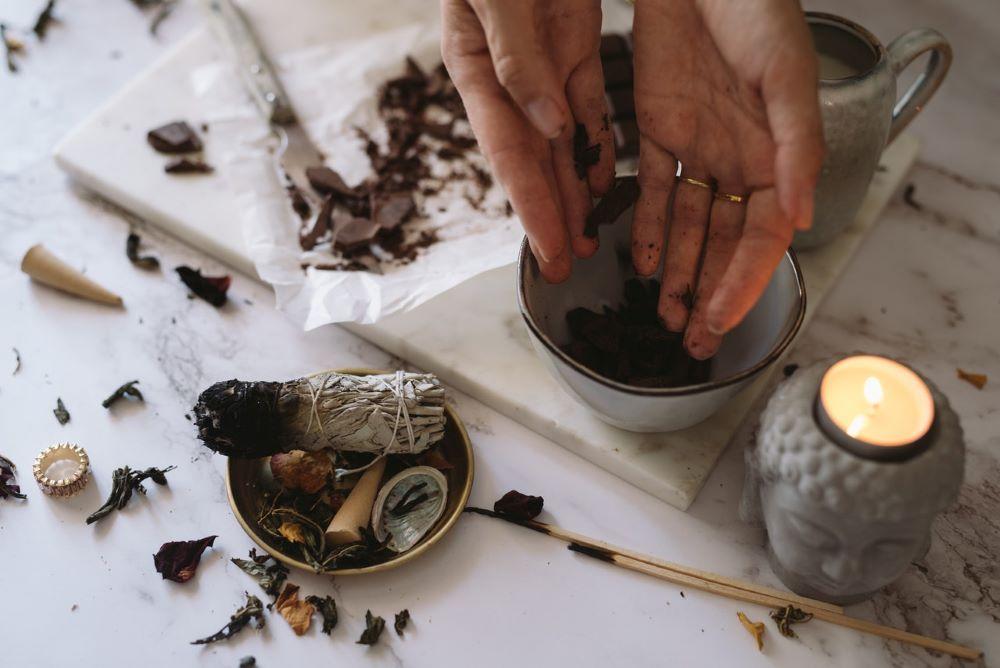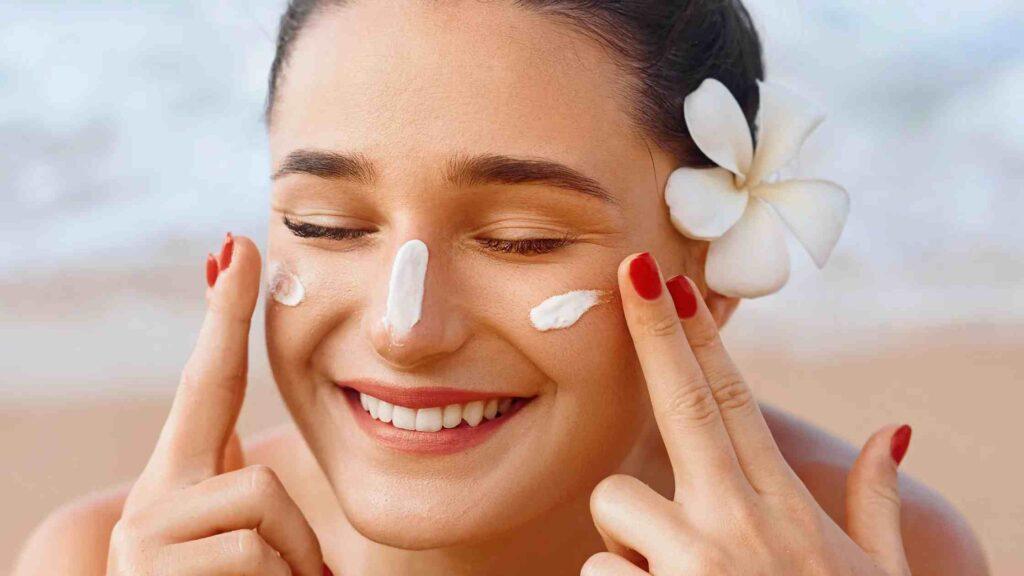Picture this: it’s that time of the year when the air feels heavy with smog, and your skin starts to protest with a sudden outbreak of acne or an uninvited guest named dullness. Yep, we’re talking about the pollution season.
Table of Contents
It’s when our skin needs a little extra love and attention to stay healthy and radiant. But do not worry; we are here to make it simpler for you. In this blog, we’ll dive into easy-to-follow tips and tricks to keep your skin glowing and thriving even when the air is less than friendly. Let’s embark on a journey to protect your skin in the pollution season – your ultimate guide awaits.
What Do We Mean By Pollution Season?
Pollution season is when environmental pollution, such as air pollution, tends to be more prevalent and impactful. This can occur due to weather conditions, increased industrial activities, or other environmental factors.

During pollution seasons, it’s essential to take extra precautions to protect your health, including your skin. Implementing a skincare routine that shields your skin from pollutants and toxins can be particularly beneficial during these periods to maintain a healthy complexion.
10 Tips For Skincare And To Overcome From Pollution Season
Cleansing Ritual
Your daily cleansing routine is the cornerstone of your skincare regimen, and it plays a crucial role in protecting your skin from toxins and pollutants.

- Choose the Right Cleanser: Select a gentle, sulfate-free cleanser suitable for your skin type. Look for a cleaner that matches your skin’s needs, whether for oily, dry, sensitive, or combination skin.
- Frequency of Cleansing: Ideally, you should cleanse your face twice daily, in the morning and before bedtime. However, adapt your routine to your skin’s needs; some may find that cleansing only once a day works best.
- Warm Water: Use lukewarm water to wet your face before applying the cleanser. Extreme hot or cold water can be harsh on the skin.
- The Cleansing Process: Apply a small amount of the cleaner to your fingertips and gently massage it onto your damp face in circular motions. Pay extra attention to areas where pollutants accumulate, such as around your nose and chin.
- Rinse Thoroughly: After you’ve massaged the cleanser onto your skin for about 30 seconds, rinse it off with lukewarm water. Make sure there’s no residue left on your skin.
- Pat Dry, Don’t Rub: Use a clean, soft towel to pat your face dry. Releasing yourself from rubbing your skin can irritate you.
- Follow with Toner and Moisturizer: After cleansing, it’s a good idea to use a toner to balance your skin’s pH levels. Follow up with a suitable moisturizer to lock in hydration and maintain your skin’s natural barrier.
- Adapt to Your Skin’s Needs: Your skin may vary in its needs depending on the time of day, the season, or other factors. It’s essential to adapt your cleansing routine accordingly.
Double Cleansing
Double cleansing is a skincare method that involves using two different types of cleansers in your routine, typically an oil-based cleanser followed by a water-based one. This method is especially beneficial in removing makeup, sunscreen, and deeply embedded impurities, making it an effective way to shield your skin from toxins. Here’s how to do it:

- Oil-Based Cleanser: Start with an oil-based cleanser. This can be in the form of a cleansing oil, balm, or micellar water. These products are designed to break down and dissolve oil-based substances like makeup, sunscreen, and excess sebum on your skin. Use small circular motions to massage a small quantity into your dry face gently. Take your time to ensure it effectively lifts away impurities. Then, rinse with lukewarm water.
- Water-Based Cleanser: After the first cleanse, use a water-based cleanser. This is typically a gel or foaming cleanser. Apply it to your damp face and work it into a lather, focusing on thoroughly cleansing your skin. Rinse with lukewarm water.
The double cleansing method ensures that both oil-based and water-based impurities are effectively removed from your skin. It’s beneficial at the end of the day when you’ve been exposed to pollution and have applied makeup or sunscreen. By thoroughly cleansing your skin, you help prevent the buildup of toxins and pollutants that can lead to skin issues.
Antioxidants: Your Skin’s Best Defense Against Toxins
Antioxidants are like the superheroes of your skincare routine, working tirelessly to protect your skin from the damaging effects of toxins, pollution, and free radicals. Let’s dive into antioxidants and why they are a must-have in your skincare regimen.
What Are Antioxidants?
Compounds known as antioxidants aid in eliminating dangerous chemicals known as free radicals. Free radicals are unstable molecules that can damage your skin’s cells, leading to premature aging, dullness, and various skin issues. Antioxidants come to the rescue by stabilizing these free radicals, preventing them from causing harm.

Why Are Antioxidants Essential for Your Skin?
- Environmental Defense: Your skin is constantly exposed to environmental stressors, such as UV radiation, air pollution, and toxins. Antioxidants act as a shield, protecting your skin from these harmful influences.
- Anti-Aging Benefits: Free radicals contribute to the breakdown of collagen and elastin, leading to wrinkles and fine lines. Antioxidants can slow down this process, keeping your skin youthful and vibrant.
- Brighter Complexion: Antioxidants can help reduce skin discoloration and pigmentation issues, creating a more even and radiant complexion.
- Skin Repair: Some antioxidants, like vitamin C, can promote collagen production and aid the skin’s natural repair processes.
Common Antioxidants in Skincare
- Vitamin C: This potent antioxidant brightens the skin, reduces hyperpigmentation, and boosts collagen production. It’s an excellent choice for morning skincare routines.
- Vitamin E: Vitamin E helps protect the skin from UV damage and can be found in many moisturizers and serums.
- Green Tea Extract: Green tea is rich in antioxidants, especially epigallocatechin gallate (EGCG). It can lessen redness and soothe sensitive skin.
- Resveratrol: This antioxidant, often found in red wine and grapes, can protect the skin from environmental stressors and promote a youthful appearance.
- Niacinamide (Vitamin B3): Niacinamide has antioxidant properties and can help reduce the appearance of fine lines, pores, and redness.
How to Incorporate Antioxidants into Your Skincare Routine
- Serums: Antioxidant-rich serums are a concentrated way to deliver these protective compounds to your skin.
- Moisturizers: Look for moisturizers that contain antioxidants for daily defense.
- SPF: Antioxidants can work synergistically with sunscreen to enhance sun protection. Some sunscreens also include antioxidants.
- Diet: Eating foods rich in antioxidants, like fruits and vegetables, can complement your skincare regimen for overall skin health.
Incorporating antioxidants into your skincare routine is a proactive way to defend your skin against the daily assault of toxins and pollutants. Whether you want to prevent premature aging, achieve a brighter complexion, or maintain healthy skin, antioxidants are a powerful ally in your skincare journey.
Also Read: LIVING WELL: GUIDE TO A HEALTHY LIFESTYLE
Sunscreen Protection: Your Skin’s Shield Against Harmful UV Rays
Sunscreen is your skin’s best friend when it comes to protecting against the harmful effects of UV radiation. Whether sunny or cloudy, hot or cold, sunscreen is a crucial part of your skincare routine. Let’s dive into why sunscreen is necessary and how to use it effectively.

Why Sunscreen Matters
- UV Rays Are Harmful: The sun emits two types of harmful UV rays – UVA and UVB. UVA rays can prematurely age your skin, while UVB rays can cause sunburn. Prolonged exposure to these rays can lead to skin damage and an increased risk of skin cancer.
- Prevents Premature Aging: Sunscreen helps protect your skin from the development of fine lines, wrinkles, and age spots, keeping your skin looking youthful and vibrant.
- Reduces Skin Cancer Risk: Long-term sun exposure without protection is a significant risk factor for skin cancer. Regular sunscreen use can lower this risk.
Choosing the Right Sunscreen
- SPF (Sun Protection Factor): Look for a broad-spectrum sunscreen with an SPF of at least 30. This will protect your skin from both UVA and UVB rays.
- Water-Resistant: If you’re swimming or sweating, opt for a water-resistant sunscreen to ensure it remains effective.
- Skin Type: When selecting a sunscreen, consider your skin type. There are sunscreens designed for sensitive, oily skin and even options with a matte finish for a non-greasy feel.
How to Apply Sunscreen Effectively
- Generous Application: Apply enough sunscreen to cover your face and any exposed body areas. Could you not skimp on it?
- Apply 15 Minutes Before Sun Exposure: Sunscreen needs some time to be absorbed by the skin and become effective, so apply it at least 15 minutes before heading outside.
- Reapply Every Two Hours: If you’re outdoors for an extended period, reapply sunscreen every two hours or more often if you’re swimming or sweating.
- Remember Unseen Areas: Often, we forget to protect areas like the ears, neck, and the tops of the feet. Be thorough in your application.
- Lip Protection: Use a lip balm with SPF to protect your lips from the sun.
- Sunscreen Every Day: Even on cloudy days, harmful UV rays can penetrate clouds. Make applying sunscreen a daily habit.
- Sunscreen for All Skin Tones: Regardless of your skin tone, sunscreen is essential. People with darker skin can still experience skin damage and should use sunscreen regularly.
Sunscreen and Makeup
If you wear makeup, you can use sunscreen specifically designed for the face or apply sunscreen before your makeup. Some makeup products also contain SPF, but more is needed for adequate protection.
Incorporating sunscreen into your daily routine is a proactive step in shielding your skin from the harmful effects of UV radiation. Whether you want to maintain a youthful appearance, prevent skin cancer, or keep your skin healthy, sunscreen is a vital tool in your skincare arsenal.
Hydration is Key: Nourishing Your Skin
Staying well-hydrated is not only essential for your overall health. Still, it plays a pivotal role in maintaining healthy and radiant skin. Your skin, being the body’s largest organ, requires proper hydration to function optimally and protect itself from the effects of toxins and pollution. Here’s why hydration is a fundamental aspect of your skincare routine.

The Importance of Hydration for Your Skin
- Moisture Barrier: Your skin has a natural protective barrier comprising lipids (fats) and cells. When this barrier is well-hydrated, it acts as a shield, preventing toxins and pollutants from penetrating the skin.
- Healthy Skin Function: Proper hydration supports essential skin functions, such as regulating temperature, maintaining elasticity, and repairing damaged skin cells.
- Glowing Complexion: Well-hydrated skin tends to look more radiant and supple. Dehydrated skin can appear dull and may show fine lines and wrinkles more prominently.
- Less Sensitivity: Adequate hydration helps reduce skin sensitivity and redness, making your skin less susceptible to irritation from environmental factors.
How to Maintain Skin Hydration
- Drink Water: The most direct way to keep your skin hydrated is by drinking enough water. Aim for at least eight glasses of water daily or more if you live in a hot or dry climate.
- Humidifier: In dry environments or during the winter, a humidifier in your home can help maintain the proper moisture level in the air, benefiting your skin.
- Moisturizers: Choose a good-quality moisturizer that matches your skin type. Apply it daily to lock in moisture and maintain your skin’s protective barrier.
- Hydrating Ingredients: Look for skincare products containing hydrating ingredients like hyaluronic acid, glycerin, and ceramides. These compounds help retain water in your skin.
- Balanced Diet: Eating foods rich in water content, such as fruits and vegetables, can also contribute to your skin’s hydration. Walnuts, flaxseed, and seafood are good sources of omega-3 fatty acids, which can support healthy skin.
- Limit Alcohol and Caffeine: Both alcohol and caffeine can dehydrate your body, so consume them in moderation and balance them with water intake.
- Avoid Hot Showers: Hot water can strip your skin of its natural oils, leading to dryness. Opt for warm or lukewarm water when bathing or washing your face.
- Sun Protection: Sunscreen not only protects your skin from UV radiation but also helps maintain skin hydration. UV rays can lead to moisture loss, so applying sunscreen is a dual-purpose step.
Listen to Your Skin
Your skin is an excellent indicator of its hydration level. If it feels tight, looks dull, or you notice flakiness, these are signs that it might need more moisture. Consider the demands of your skin and modify your skincare regimen as necessary.
Hydrating your skin is one of the simplest yet most effective ways to protect it from the harmful effects of toxins and pollution. By keeping your skin well-hydrated, you help it function optimally, maintain its natural barrier, and look radiant and healthy.
Barrier Strengthening: Fortifying Your Skin’s Natural Defense
Your skin is your body’s first defense against the outside world, including pollutants, toxins, and environmental stressors. To protect it from these external threats, it’s essential to strengthen your skin’s natural barrier. Let’s explore why this barrier matters and how to fortify it effectively.

Understanding the Skin Barrier
Your skin’s outermost layer, the stratum corneum, acts as a protective barrier. This layer is composed of skin cells and lipids (fats), and it plays a vital role in maintaining your skin’s health and resilience.
Why Strengthening the Barrier Is Important
- Protection Against Toxins: A strong skin barrier acts as a shield, preventing harmful substances like pollutants and toxins from penetrating the skin.
- Retention of Moisture: A well-maintained fence helps your skin retain essential moisture, preventing dehydration and maintaining a healthy, radiant complexion.
- Reduced Sensitivity: A strong barrier reduces skin sensitivity, making your skin less prone to irritation from environmental factors, such as harsh weather conditions or air pollution.
How to Strengthen Your Skin Barrier
- Choose the Right Cleanser: Use a gentle, sulfate-free cleanser that won’t strip your skin of its natural oils. Over-cleansing can weaken the skin barrier.
- Barrier-Boosting Ingredients: Look for skincare products containing barrier-strengthening ingredients like ceramides, fatty acids, and cholesterol. These components help repair and maintain the integrity of your skin’s barrier.
- Moisturize Regularly: Apply a suitable moisturizer daily to keep your skin hydrated. Moisturizers not only lock in moisture but also assist in strengthening the wall.
- Limit Exfoliation: While exfoliation can be beneficial, overdoing it can harm the skin barrier. Use exfoliants in moderation and according to your skin type.
- Protect from UV Rays: Sunscreen not only shields your skin from UV radiation but also helps maintain the skin barrier. UV rays can weaken the wall, so sun protection is essential.
- Avoid Harsh Skincare Products: Certain skincare products, like those containing alcohol or strong acids, can disrupt the skin barrier. Select gentle products that are appropriate for your skin type.
- Balanced Diet: Consuming a balanced diet rich in essential fatty acids can help nourish your skin from the inside, aiding in barrier maintenance.
- Stay Hydrated: Drinking enough water is crucial for skin health and barrier function. Dehydrated skin is more susceptible to damage.
Listen to Your Skin
Consider the demands of your skin and modify your skincare regimen as necessary. If you notice signs of a weakened barrier, such as redness, sensitivity, or excessive dryness, focus on repairing and strengthening it with suitable products and practices.
A robust and healthy skin barrier is your skin’s best defense against environmental toxins and pollutants. By incorporating barrier-strengthening techniques into your skincare routine, you can ensure that your skin remains resilient, well-protected, and can maintain its natural beauty.
Gentle Exfoliation: Unveiling Radiant Skin While Protecting It
Exfoliation is a critical component of any skincare routine. Still, it’s crucial to do it gently to avoid damaging your skin’s protective barrier. Let’s explore the importance of gentle exfoliation, how it benefits your skin, and how to incorporate it into your skincare regimen effectively.

Why Exfoliation Matters
Exfoliation is cleaning your skin’s surface of dead skin cells. It provides your skin with several advantages
- Enhanced Radiance: Exfoliation reveals fresh, healthy skin, giving your complexion a radiant and youthful appearance.
- Improved Texture: It helps to smooth out uneven skin texture, reducing the appearance of fine lines and rough patches.
- Decongested Pores: Exfoliation can unclog pores, reducing the likelihood of acne and blackheads.
- Better Product Absorption: By removing dead skin cells, your skincare products can penetrate your skin more effectively, providing maximum benefits.
Why Gentle Exfoliation Is Important
Exfoliation can be too harsh if not done gently, potentially damaging your skin’s natural protective barrier. Overly aggressive exfoliation can lead to:
- Irritation: Aggressive exfoliation can cause redness, inflammation, and sensitivity.
- Barrier Damage: It can compromise the skin’s protective barrier, making it more vulnerable to environmental toxins and pollutants.
How to Exfoliate Gently
- Choose the Right Exfoliant: Opt for a mild exfoliant that matches your skin type. There are two main types:
- Physical Exfoliants: These contain tiny particles that physically remove dead skin cells when massaged onto the skin. Choose products with smooth, rounded particles to avoid microtears in the skin.
- Chemical Exfoliants: These include acids that dissolve dead skin cells, such as beta hydroxy acids (BHAs) and alpha hydroxy acids (AHAs). They tend to be gentler than physical exfoliants and are often preferred for sensitive skin.
- Frequency: Your skin type will determine how frequently you should exfoliate. Sensitive skin may benefit from exfoliating once a week. In contrast, normal to oily skin can tolerate exfoliation two to three times a week.
- Patch Test: Before using a new exfoliant, perform a patch test on a small area of your skin to ensure you don’t have an adverse reaction.
- Follow Instructions: Read and follow the product’s instructions carefully to avoid overuse or misuse.
- Moisturize and Protect: After exfoliation, apply a moisturizer and sunscreen. Exfoliated skin is more sensitive to UV damage, so sun protection is vital.
- Stop if Irritation Occurs: If you experience redness, burning, or excessive dryness after exfoliating, stop the process and give your skin time to recover.
Remember that exfoliation is a skincare tool to use wisely, not excessively. Gentle exfoliation can uncover your skin’s natural beauty while preserving its protective barrier, ensuring it remains healthy, resilient, and safeguarded against toxins and pollutants.
Nutrient-Rich Diet: Nourishing Your Skin from the Inside Out
YoExternal skincare products do not solely determine your skin’s health. What you eat plays a significant role in maintaining healthy, radiant skin and protecting it from the damaging effects of toxins and pollution. Let’s explore how a nutrient-rich diet can benefit your skin and what foods to include for optimal skin health.

The Link Between Diet and Skin Health
- Collagen Production: Nutrients like vitamin C, found in fruits and vegetables, promote collagen production, essential for maintaining skin’s elasticity and preventing premature aging.
- Hydration: Staying well-hydrated by drinking water and consuming water-rich foods is vital for the skin’s moisture and overall health.
- Antioxidants: Foods rich in antioxidants, such as vitamins A, C, and E, help protect your skin from free radical damage caused by environmental toxins.
- Omega-3 Fatty Acids: These healthy fats in fatty fish, flaxseed, and walnuts can help maintain your skin’s natural moisture barrier and reduce inflammation.
- Amino Acids: Protein sources like lean meats, eggs, and dairy provide amino acids that support the repair and renewal of skin cells.
Foods for Healthy Skin
- Fruits and Vegetables: Load up on colorful fruits and veggies for various vitamins and antioxidants. Berries, citrus fruits, carrots, and dark leafy greens are particularly skin-friendly.
- Fish: Fatty fish like salmon, mackerel, and sardines are rich in omega-3 fatty acids, which can help keep your skin hydrated and reduce inflammation.
- Nuts and Seeds: Almonds, walnuts, and flaxseeds are excellent sources of healthy fats, antioxidants, and minerals that support skin health.
- Lean Protein: Include lean protein sources like poultry, lean beef, and tofu in your diet to ensure an adequate intake of amino acids for skin repair.
- Whole Grains: Opt for whole grains like brown rice, quinoa, and whole wheat, which provide complex carbohydrates and fiber for sustained energy and overall health.
- Dairy or Dairy Alternatives: Dairy products or dairy alternatives like almond or soy milk can supply essential nutrients like calcium and vitamin D for strong and healthy skin.
- Herbs and Spices: Certain herbs and spices, like turmeric, which contains curcumin, have anti-inflammatory and antioxidant properties that can benefit your skin.
Limit or Avoid
- Processed Foods: Highly processed and sugary foods can lead to skin issues, so limit your consumption.
- Trans Fats: Trans fats found in fried and processed foods can increase inflammation and negatively impact your skin.
- Excessive Alcohol and Caffeine: Both can dehydrate your body and affect your skin’s health, so consume them in moderation.
- Salt: High salt intake can lead to water retention and affect skin appearance.
Stay Hydrated
In addition to a nutrient-rich diet, remember to drink enough water. Proper hydration is essential for your skin’s overall health and plays a role in maintaining its moisture and resilience.
A nutrient-rich diet is a powerful way to protect your skin from toxins and pollution from within. By nourishing your body with a variety of skin-friendly foods, you not only promote a radiant complexion but also strengthen your skin’s natural defense mechanisms. Remember, what you put into your body reflects on your skin, so choose your foods wisely to maintain a healthy, glowing complexion.
Also Read: WORLD FOOD DAY IN 2023: WHEN, WHY, AND IMPORTANCE
Masks and DIY Treatments: Pampering Your Skin Naturally
Adding masks and DIY treatments to your skincare routine can be a fun and effective way to rejuvenate your skin while protecting it from toxins and pollution. These treatments can cleanse, soothe, and revitalize your skin, and they’re easy to incorporate. Let’s explore the benefits and simple DIY options for a radiant complexion.

Benefits of Masks and DIY Treatments
- Deep Cleansing: Masks can help draw out impurities from your skin, including dirt and pollutants, which can clog pores and lead to breakouts.
- Exfoliation: Some masks contain exfoliating ingredients that gently remove dead skin cells, helping your skin look fresh and radiant.
- Hydration: Hydrating masks can provide an extra moisture boost, keeping your skin well-nourished and protected from the drying effects of pollution.
- Soothing: DIY treatments with natural ingredients like yogurt, honey, or aloe vera can soothe irritated skin and reduce redness caused by environmental factors.
DIY Mask Ideas
- Honey and Yogurt Mask: Mix one tablespoon of honey with two tablespoons of plain yogurt. Apply to your face and leave it on for 15-20 minutes. Rinse with lukewarm water. Honey is a natural humectant, which helps retain moisture, and yogurt contains lactic acid for gentle exfoliation.
- Oatmeal and Banana Mask: Mash a ripe banana and mix it with cooked and cooled oatmeal. Apply to your face for 15 minutes. Rinse with warm water. Oatmeal is soothing, and bananas contain vitamins and antioxidants to nourish your skin.
- Turmeric and Milk Mask: To make a paste, combine 1/2 teaspoon of turmeric and two teaspoons of milk. Apply to your face and leave it on for 10-15 minutes. Turmeric has anti-inflammatory and antioxidant properties, while milk hydrates and soothes the skin.
- Avocado and Honey Mask: Mash half an avocado and blend it with one tablespoon of honey. Apply to your face for 15-20 minutes and rinse with warm water. Avocado is rich in healthy fats and vitamins, while honey provides hydration and antibacterial properties.
- Aloe Vera Mask: Apply a thin layer of fresh aloe vera gel directly from the plant to your face. After 15 to 20 minutes, remove it with a water rinse. Aloe vera provides moisturizing and calming qualities.
Using Commercial Masks
If you prefer store-bought masks, you can find various options tailored to different skin types and concerns. Look for covers containing ingredients like clay for deep cleansing, hyaluronic acid for hydration, or antioxidants like vitamin C for protection against environmental damage.
Frequency
Use masks and DIY treatments once or twice a week, depending on your skin’s needs and sensitivity. Overdoing it can irritate your skin.
Adding masks and DIY treatments to your skincare routine is an enjoyable way to pamper your skin while protecting it from toxins and pollution. Whether you choose to create your concoctions or opt for commercial masks, these treatments can enhance your skin’s health, leaving it refreshed, hydrated, and resilient.
Nighttime Regimen: Unveiling Beauty While You Sleep
A well-planned nighttime skincare routine is your secret weapon for protecting your skin from toxins and pollution. While you rest, your skin works hard to repair and rejuvenate itself. By following a thoughtful nighttime regimen, you can optimize this natural process and wake up to a healthy, glowing complexion. Here’s how to create an effective nighttime routine.

Step 1: Makeup Removal and Cleansing
Before bedtime, it’s essential to remove makeup, sunscreen, and the day’s impurities from your skin. Use a gentle makeup remover or micellar water to eliminate cosmetics, followed by a gentle cleanser to cleanse your skin thoroughly. Cleansing at night helps your skin breathe and prevents pollutants from settling in your pores.
Step 2: Exfoliation (if needed)
Exfoliation can be an effective way to remove dead skin cells and improve skin texture. However, not everyone needs to exfoliate nightly. Determine how often your skin benefits from exfoliation and follow a schedule that suits your skin type and the exfoliant you’re using.
Step 3: Treatment Products
After cleansing or exfoliation, apply any treatment products specific to your skin concerns. These might include:
- Serums: Choose serums with antioxidants, hyaluronic acid, or other targeted ingredients to address your particular skin needs.
- Retinol: If you use retinol, apply it at night, as it can make your skin more sensitive to sunlight.
- Prescription Medications: If you use prescription skincare products, follow your dermatologist’s instructions for their application.
Step 4: Moisturize
Apply a suitable nighttime moisturizer to lock in moisture, support your skin’s natural barrier, and ensure it remains hydrated while you sleep. Even if you have oily skin, a lightweight, non-comedogenic moisturizer can be beneficial.
Step 5: Eye Cream
If you use an eye cream, gently apply it around your eyes using your ring finger to prevent pulling and tugging on this delicate area. Eye creams can target concerns like puffiness, dark circles, or fine lines.
Step 6: Lip Care
Apply a hydrating lip balm or treatment to keep your lips moisturized. Dry lips can be uncomfortable and affect your overall skin appearance.
Step 7: Sleep on a Clean Pillowcase
To avoid reintroducing toxins and pollutants to your skin, make it a habit to sleep on a clean pillowcase. Cotton pillowcases are a good choice, and changing them regularly can help prevent the accumulation of dirt and oils.
Step 8: Humidifier (Optional)
Using a humidifier in your bedroom can add moisture to the air, benefiting your skin’s hydration, especially in dry or cold climates.
Step 9: Beauty Sleep
Getting enough sleep is crucial for your skin’s overall health and vitality. To help your body and skin heal and regenerate, get between seven and nine hours of sound sleep every night.
By following a consistent nighttime skincare routine, you can help your skin defend itself against the harmful effects of toxins and pollution. Your skin works hardest at night, so providing the right products and practices ensures you wake up with a refreshed, resilient, radiant complexion.
Conclusion
A well-rounded skincare routine that includes cleansing, gentle exfoliation, hydration, and protection against toxins and pollution is essential for maintaining healthy and radiant skin. By incorporating antioxidants, sunscreen, and barrier-strengthening practices, along with a nutrient-rich diet and soothing DIY treatments, you can fortify your skin’s natural defense. Additionally, a thoughtful nighttime regimen allows your skin to repair and rejuvenate, ensuring you wake up with a beautiful complexion.
Also Read:










